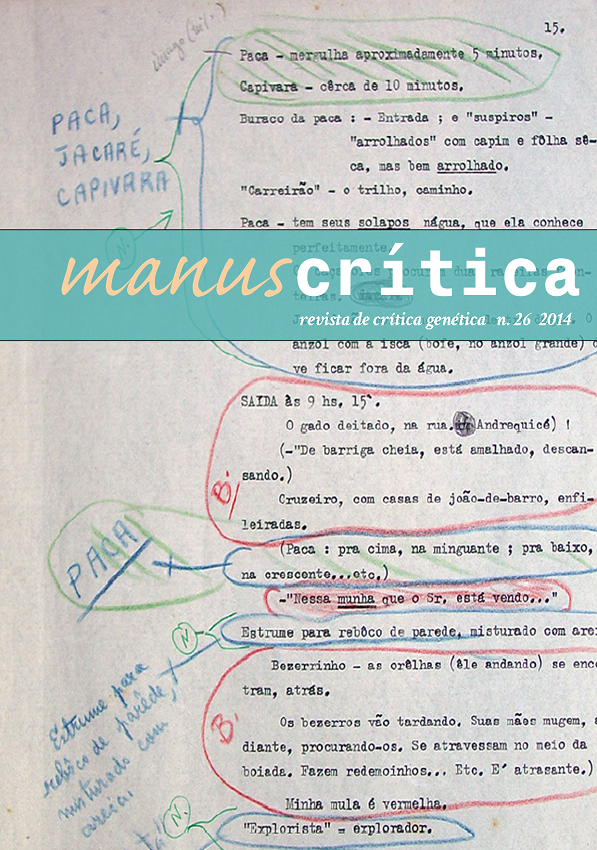A much needed, terribly obscene sentence
DOI:
https://doi.org/10.11606/issn.2596-2477.i26p43-49Keywords:
Genetic criticism, Manuscripts, Caio Fernando Abreu, Sentence, Versions.Abstract
This article examines one sentence and all its accessible versions from the short story “Noites de Santa Tereza” by Caio Fernando Abreu. In order to do that, theoretical readings of works by Phillipe Willemart, Paul Ricoeur and Marie-Hélène Paret Passos were essential. The work with Caio Fernando Abreu’s manuscripts would not have been possible without the previous theoretical debate. The examination of the chosen phrase made it possible to perceive not only a certain aesthetical evolution within the short story but also a conflict which extrapolates literature and plunges into the restless mind of the writer. The text is divided in 4 parts: 1) this summary introduction; 2) a contextualization which responds to the question “why Caio still and again?”; 3) the descriptions of the manuscripts and its analysis; and 4) some last considerations and questions which emerged during the writing of this article.
Downloads
References
ABREU, Caio Fernando. O ovo apunhalado. Porto Alegre: L&PM, 2001.
ABREU, Caio Fernando. Ovelhas negras. Porto Alegre: L&PM, 2013.
ABREU, Caio Fernando. Triângulo das águas. Porto Alegre: L&PM, 2007.
PASSOS, Marie-Hélène Paret. Da crítica genética à tradução literária: uma interdisciplinariedade. Vinhedo: Editora Horizonte, 2011.
RICOEUR, Paul. Tempo e narrativa. v. 3. São Paulo: Papirus, 1997.
Downloads
Published
Issue
Section
License
Copyright (c) 2014 Natalia Borges Polesso

This work is licensed under a Creative Commons Attribution 4.0 International License.











